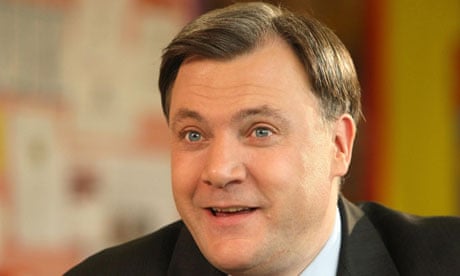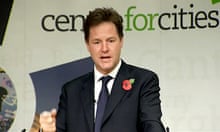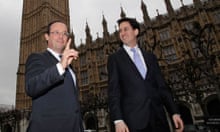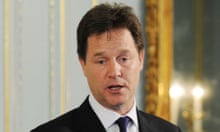Labour has called for a real-terms cut in the EU's budget . The move will be seen as an attempt to seize the initiative on Europe from David Cameron, who is fighting the 5% rise in the EU's long-term budgets requested by the European Commission, but has accepted that it should rise in line with inflation - currently just over 2%.
Shadow chancellor Ed Balls and shadow foreign secretary Douglas Alexander used an article in the Times to say that, like the governments of its 27 member states, the EU should accept that it must cut spending in the current austere economic conditions.
But they said that Cameron was "ill-equipped" to secure the reduction in spending because he has alienated European partners through his approach to the EU, including the use of the UK's veto to block a treaty on measures to rescue the eurozone.
Their call for any budget increase to be kept below inflation comes in advance of a debate on Wednesday in the House of Commons on the government's negotiating stance at next month's EU summit, which is expected to fix the spending perspective for the seven-year period 2014-20.
In their article, Balls and Alexander said: "Every country across Europe, including Britain, is having to make difficult decisions about spending - trying to do better with less. And the European Union is not - and should not be - exempt from this challenge.
"The crisis in the eurozone and a chronic lack of growth across the continent mean that EU resources are stretched and priorities must be revised. The challenge for the EU, as for national governments, is to cut spending in a way that is both fair and supports rather than stifles jobs and growth.
"That is why the priority for the new seven-year budget must be to promote growth and jobs across Europe.
"And that is why Labour will argue against the proposed increase in EU spending and instead support a real-terms cut in the budget. We believe these goals are difficult but achievable with the right leadership and the right approach from the UK."
Balls andAlexander called for savings from the Common Agricultural Policy and from more effective use of the EU's structural funds to support disadvantaged areas of the continent. They said that an independent EU auditor should be appointed to review every aspect of spending for its impact on promoting growth in member states. They also called for the creation of a position of Growth Commissioner to lead efforts to boost the ailing economies of the EU.
Balls and Alexander insisted that Britain's rebate continued to be justified and should not be negotiated away. But they said that Cameron was not a position to deliver the best outcomes for the UK.
"The real tragedy for Britain is that at the very time when our leadership is most needed, the UK's influence has rarely been so marginalised," said the Labour pair.











Comments (…)
Sign in or create your Guardian account to join the discussion